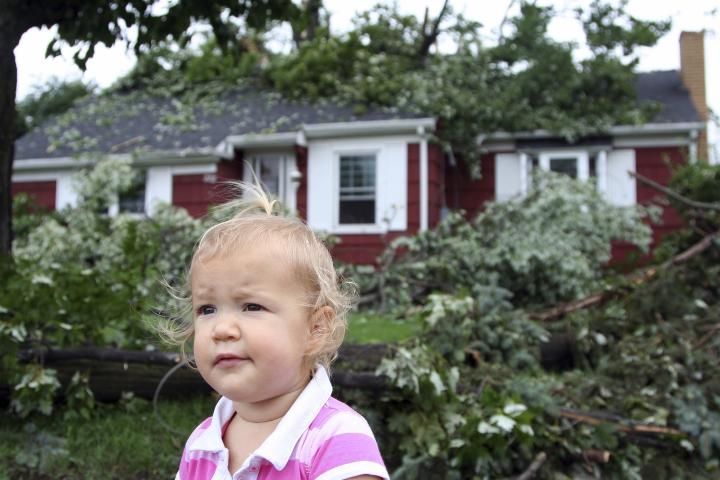
Credit: iStockphoto
Nobody ever said family life was a breeze . . . yet few are prepared for the gale force impact that hurricanes can pack on even the healthiest of families.
This is a stressful time, and it's common for all family members to show signs of stress. Right after a natural disaster, parents and children may be tense and nervous, restless, and have trouble calming down. They may also experience stomachaches, headaches, and dizziness. Many people who are under strain from natural disasters feel fatigued and low in energy.
An event like a hurricane is frightening to children and adults. Children may show their fear by refusing to go back to school, misbehaving, and/or clinging to a parent. They may have trouble sleeping and want to sleep with a parent.
Family recovery will go more smoothly when the adults in the household can control their own feelings of stress, anxiety, and fear and do everything possible to help their children feel safe. A few suggestions may help parents at this difficult time:
Spend more time with your children. Let them stick by your side. Also, doing something fun and physical relieves tension. Reassure children that you care about them and encourage older children to talk about their feelings and thoughts. Answer their questions.
Keep regular schedules for meals, playtime, and bed time as much as possible. This will help to restore order in the family's life.
References
Institute of Food and Agricultural Sciences. (1998). The Disaster Handbook. Gainesville, FL. University of Florida.
American Psychological Association. (2004). Tips for recovering from disasters and other traumatic events.
NSW Health. (2000). Disaster Mental Health Response Handbook. Centre for Mental Health. North Sydney Australia.